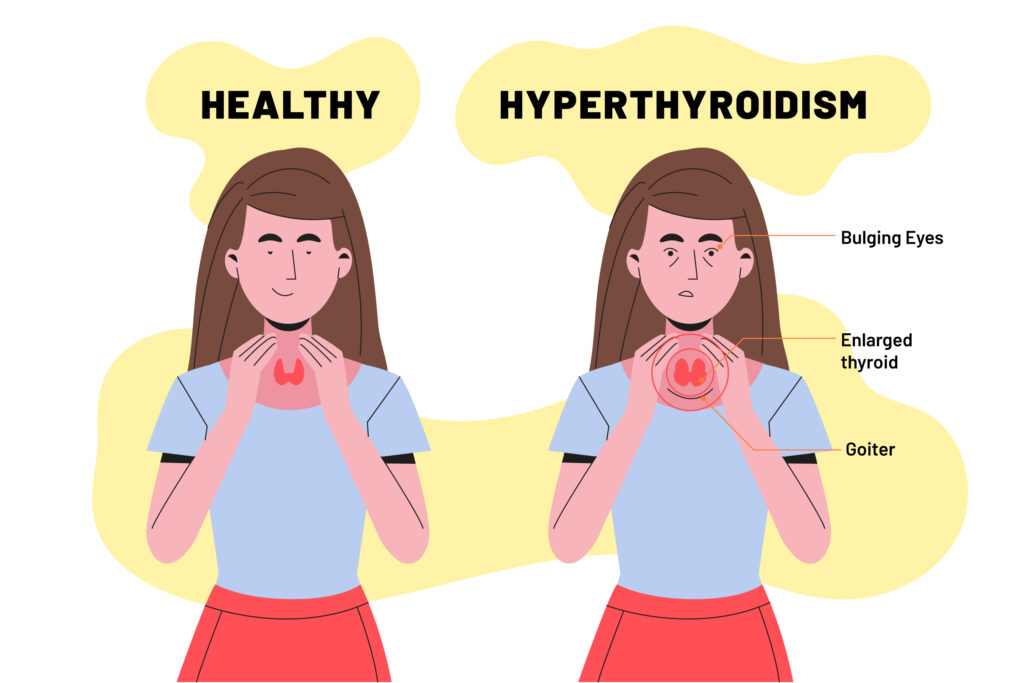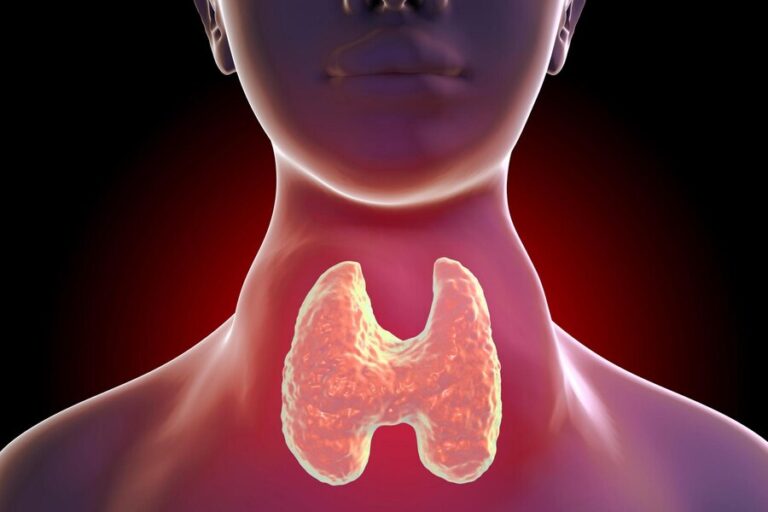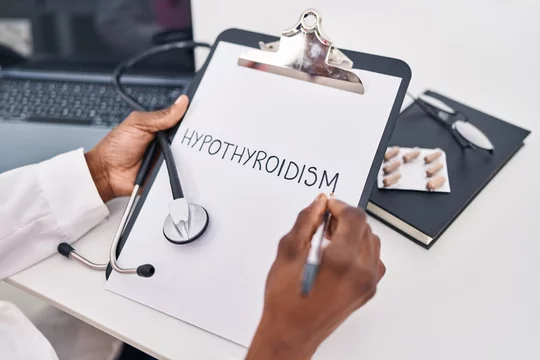Understanding Hypothyroidism: Causes, Symptoms, and Treatment
Hypothyroidism, also known as underactive thyroid disease, is a common endocrine disorder that occurs when the thyroid gland fails to produce sufficient amounts of thyroid hormones. These hormones play a crucial role in regulating the body’s metabolism, and a deficiency can lead to various health issues. This article delves into the causes, symptoms, diagnosis, and treatment of hypothyroidism, offering a comprehensive overview of this condition.
What is Hypothyroidism?
Hypothyroidism is a condition characterized by an underproduction of thyroid hormones, primarily triiodothyronine (T3) and thyroxine (T4). The thyroid gland, located at the front of the neck, is responsible for producing these hormones, which are vital in maintaining the body’s metabolic rate, heart function, digestive health, and brain development.
When the thyroid gland produces inadequate amounts of these hormones, the body’s metabolism slows down, leading to a range of symptoms. Hypothyroidism can affect people of all ages, but it is particularly common in women, especially those over the age of 60.
Causes of Hypothyroidism
There are several causes of hypothyroidism, including:
- Hashimoto’s Thyroiditis: This is the most common cause of hypothyroidism. Hashimoto’s thyroiditis is an autoimmune disorder in which the body’s immune system attacks the thyroid gland, leading to inflammation and reduced hormone production.
- Iodine Deficiency: One essential component required for the synthesis of thyroid hormones is iodine. A deficiency in iodine can lead to hypothyroidism, though this is less common in areas where iodine is added to salt and other foods.
- Thyroid Surgery: Partial or total removal of the thyroid gland, often done to treat hyperthyroidism, thyroid cancer, or goiter, can result in hypothyroidism.
- Radiation Therapy: Thyroid gland damage from radiation therapy for head and neck malignancies can result in hypothyroidism.
- Medications: Certain medications, such as lithium (used to treat bipolar disorder), amiodarone (used to treat heart rhythm disorders), and some cancer treatments, can interfere with thyroid hormone production.
- Congenital Hypothyroidism: Some babies are born with a defective or absent thyroid gland, leading to hypothyroidism from birth. Early screening and treatment are crucial to prevent developmental delays.
- Pituitary Gland Disorders: The pituitary gland, located at the base of the brain, produces thyroid-stimulating hormone (TSH), which signals the thyroid gland to produce hormones. Pituitary gland disorders that reduce TSH production can lead to hypothyroidism.
- Pregnancy: Some women develop hypothyroidism during or after pregnancy due to the production of antibodies against their own thyroid gland. This condition is known as postpartum thyroiditis.
Symptoms of Hypothyroidism
The symptoms of hypothyroidism can vary widely, depending on the severity of the hormone deficiency. They often develop slowly over several years and can include:
- Fatigue and Weakness: One of the most common symptoms, fatigue, is often accompanied by muscle weakness.
- Weight Gain: Despite a decreased appetite, unexplained weight gain can occur due to a slower metabolism.
- Cold Sensitivity: Individuals with hypothyroidism may feel unusually cold, even in warm environments, due to reduced energy production.
- Dry Skin and Hair: The skin may become dry and pale, and hair may thin or fall out.
- Depression and Cognitive Slowness: Mental health can be affected, leading to depression, memory problems, and difficulty concentrating.
- Constipation: Slowed digestive processes can lead to constipation.
- Hoarseness and Swollen Neck: The thyroid gland may become enlarged (goiter), leading to hoarseness and a swollen neck.
- Heavy or Irregular Menstrual Periods: Women with hypothyroidism may experience heavier or more frequent periods.
- Bradycardia: A slower-than-normal heart rate can occur due to decreased metabolic activity.
- Elevated Cholesterol Levels: Hypothyroidism can lead to increased levels of LDL cholesterol, contributing to heart disease.
Diagnosing Hypothyroidism
Diagnosing hypothyroidism typically involves a combination of a physical examination, a medical history review, and blood tests. The most common tests include:
- Thyroid-Stimulating Hormone (TSH) Test: Elevated levels of TSH suggest that the thyroid gland is not producing enough hormones. This test is the primary diagnostic tool for hypothyroidism.
- Free T4 Test: This test measures the level of free thyroxine (T4) in the blood. Low levels of free T4 indicate hypothyroidism.
- T3 Test: While T3 levels may remain normal in mild cases of hypothyroidism, this test can help confirm the diagnosis in conjunction with TSH and T4 tests.
- Thyroid Antibodies Test: In cases of suspected autoimmune thyroiditis (such as Hashimoto’s), this test checks for the presence of antibodies against thyroid tissue.
Treatment of Hypothyroidism
Hormone replacement therapy is the main treatment for hypothyroidism; its goal is to get the body’s hormone levels back to normal. The most common treatment options include:
- Levothyroxine: This synthetic form of T4 is the standard treatment for hypothyroidism. It is taken orally, usually in the form of a daily pill. Levothyroxine effectively normalizes hormone levels and alleviates symptoms.
- Liothyronine: In some cases, doctors may prescribe liothyronine (synthetic T3) in addition to or instead of levothyroxine, particularly if patients do not respond well to T4 alone.
- Lifestyle and Dietary Modifications: While medication is the primary treatment, lifestyle and dietary changes can support thyroid function. A diet rich in iodine, selenium, and zinc can help optimize thyroid health. Regular exercise can also improve energy levels and combat weight gain associated with hypothyroidism.
- Regular Monitoring: Once treatment begins, regular blood tests are necessary to monitor hormone levels and adjust medication dosage as needed. Most people with hypothyroidism will need to take medication for the rest of their lives.
Complications of Untreated Hypothyroidism
If left untreated, hypothyroidism can lead to severe complications, including:
- Heart Problems: Elevated LDL cholesterol levels can increase the risk of heart disease and heart failure.
- Mental Health Issues: Untreated hypothyroidism can lead to severe depression and cognitive impairment.
- Myxedema Coma: This is a rare, life-threatening condition resulting from extremely low thyroid hormone levels. It requires immediate medical attention.
- Infertility: Hypothyroidism can cause menstrual irregularities and ovulation problems, leading to infertility.
- Birth Defects: Pregnant women with untreated hypothyroidism are at higher risk of having babies with birth defects or developmental problems.
Conclusion
Hypothyroidism is a manageable condition with appropriate treatment. Early diagnosis and intervention are key to preventing complications and improving the quality of life for those affected. Regular monitoring and adherence to prescribed treatments can help individuals with hypothyroidism lead healthy, normal lives. If you suspect you may have hypothyroidism, consult a healthcare provider for a thorough evaluation and personalized treatment plan.







